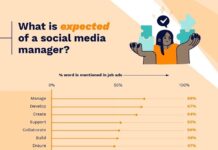Australian airline Qantas has seen a string of social media ‘fails’ in the last several months, the latest being a Twitter contest labeled the “Hindenburg of of social media strategies” by one irate tweeter. How did Qantas manage to embroil itself in such social media hot water, and then continue to make the situation worse? And what can the beleaguered airline do to resurrect its reputation with frustrated customers?
The social media “incidents”
The issues began on October 29th, when Qantas grounded the entire fleet due to contract negotiations, and was “criticised for its mechanical, impersonal social media response to the grounding of its fleet and the ensuing customer chaos.” Customer fury was so great that there were no less than three trending topics on Twitter at one point, related to the airline’s grounding. According to the Sydney Morning Herald, “Alan Joyce” (CEO of Qantas), “Qantas” and “Anthony Albanese” (Australia’s Minister for Infrastructure and Transport) were all trending worldwide, meaning they were being mentioned in excess of a thousand tweets per minute.
To make matters worse, the Friday following the grounding (less than a week later), “British celebrity tweeter” Stephen Fry was on a London-bound Qantas flight that was forced to divert to Dubai as a result of engine faults. With 3.3 million Twitter followers, @stephenfry carries quite a bit of weight in the Twitter-sphere. As a result of increasingly “colorful” language – as hours passed by, and Mr. Fry discovered that his wallet had been left on the grounded plane – traditional media quickly picked up on the story, resulting in more negative press for Qantas.
Then on November 22nd, one day after breaking off contract negotiations with its unions, Qantas announced the “#QantasLuxury” Twitter competition, asking people to describe their “dream luxury in-flight experience” and possibly win a pair of Qantas first-class pyjamas and a toiletries kit. Coming less than a month after the groundings and criticism over the airline’s social media response, Reuters quoted social media commentator Peter Clarke about the campaign: “Epic PR fail, excellent case study in corporate cultural tone deafness. Simply don’t get it.”
The reactions
Much of the criticism that Qantas faced regarding the groundings – a result of conflict between the airline and its unions – was based on the airline’s “corporate, wooden responses” and “lack of empathy” via social media. The entire fleet was grounded without notice, leaving 70,000 stranded passengers. According to Reuters, the Qantas tweet announcing the groundings simply said: “From 8pm AEDT on 31/10 Qantas will lock out all employees who will be covered by the new ALAEA, TWU and AIPA agreements.” Stuck passengers were even asked not to call the overwhelmed Qantas contact center.
To start with, there was some confusion for grounded Qantas passengers in just finding the right Twitter account to communicate with, between @Qantas, @QantasMedia, and @QFCustomerCare (@Qantas was the account used for updates). Then, the entirely corporate responses – see tweets below – of the airline gave customers little or no personal response. While individually tweeting thousands of stranded customers was impossible, the airline did little to engage their frustrated followers or to offer support.
Others stepped in to save angry Qantas customers: Virgin Atlantic and Virgin Australia “swooped in” with a more “personal approach” as they worked to find flights for the grounded passengers, and even a London escort (@HeathrowEscort) took advantage of the situation, offering her services via Twitter to Qantas customers stranded in Heathrow Airport.
In contrast, while the grounding of Stephen Fry’s plane led to negative press for Qantas, the airline did at least begin to engage Twitter followers with a bit more humor and less of a corporate tone, according to Reuters. Starting to find its ‘voice’, the airline addressed @Stephen Fry directly on Twitter: “Mr. Fry, your wallet has been found and is on its way back to you at the terminal” and “Thanks for keeping your sense of humor.”
Finally, only a few short weeks after the groundings, Qantas’ attempted PR campaign with the “#QantasLuxury” contest has been met with widespread disapproval and thousands of angry responses via Twitter. Here are some examples:
- “Qantas Luxury means sipping champagne on your corporate jet while grounding the entire airline, country, customers & staff”
- Qantas Luxury is “more than 3mins notice that the whole airline is on strike”
- “being stranded on the other side of the world without warning when you just want to get home to your 10-month-old daughter”
- “BREAKING NEWS: Qantas introduce #QantasLuxury class. Same as standard class, but the plane leaves the ground”
Qantas has attempted to stay positive despite having launched a campaign that is “perhaps Australia’s greatest public relations failure” (Reuters), tweeting out a light-hearted response: “at this rate our #QantasLuxury competition is going to take years to judge.”
The results
While blame for the groundings can vary between the airline and the unions – depending upon whom you ask – it’s clear that Qantas’ social media response was not adequate for the crisis. Qantas could clearly learn a thing or two from VirginAmerica, especially about engaging followers in a personal way with a consistent, brand-appropriate (and not-so-corporate) voice. Or from JetBlue, which really amped up its social media presence after planes were grounded for hours on Valentine’s Day 2007 (see JetBlue Airways’ Senior Vice President of Marketing & Commercial Strategy, Marty St. George, present the keynote at TWTRCON NY 10).
Despite showing a recovery with more personal tweets in response to the situation with @stephenfry, the airline only dug a deeper social grave with the launch of the #QantasLuxury competition, which sees more tweets criticizing the campaign than actual contest entries.
Can Qantas manage to rise up from this last PR debacle and reconnect with customers in a meaningful way? And will the airline find consistency in its social media “voice” to maintain customer relationships?


